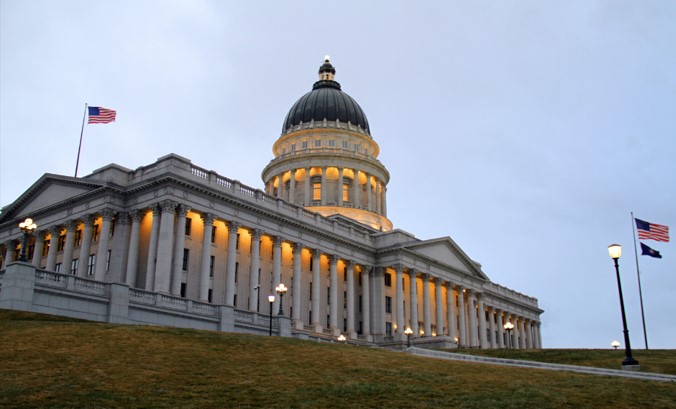Federal Appeals Court Overturns National Eviction Moratorium: Implications and Reactions
In a landmark ruling with far-reaching ramifications, a federal appeals court has declared the national eviction moratorium unconstitutional, marking a significant moment in the ongoing legal and political battles surrounding federal interventions in housing policy during the COVID-19 pandemic. This decision, rendered by the U.S. Court of Appeals for the Fifth Circuit, highlights both the complexities of housing rights and the broader impacts of the pandemic on renters and landlords alike.
The Origins of the Eviction Moratorium
The eviction moratorium was initially introduced by the Centers for Disease Control and Prevention (CDC) in 2020, as the economic fallout from the pandemic began to severely impact households across the nation. The regulatory measure aimed to protect tenants unable to pay rent due to unforeseen financial hardships by prohibiting landlords from evicting these vulnerable individuals. Advocates praised the moratorium as an essential step to avert mass homelessness and mitigate public health risks associated with increased displacement during a public health crisis.
Legal Challenges and Ruling Details
Despite the good intentions behind it, the moratorium faced legal challenges from various stakeholders, who argued it infringed upon property rights and overstepped federal authority. In a contentious 2-1 decision, the Fifth Circuit ruled that the eviction ban was unconstitutional, asserting that such matters should predominantly fall under state jurisdiction. Judge Mary Collins, writing for the majority, emphasized that the federal government had exceeded its regulatory power. “This court cannot endorse a sweeping measure that commandeers private property without proper legislative authority,” she stated.
Dissenting Opinions and Public Health Concerns
The dissenting judge highlighted the potential negative outcomes of this ruling, underscoring the public health and economic contexts that warranted the moratorium in the first place. The dissent argued that the court’s decision could lead to widespread displacement, making it harder for those struggling to recover from the pandemic’s fallout. The concerns voiced by the dissenting judge reflect a deeper awareness of the ongoing housing crisis that remains unaddressed in many parts of the country.
Immediate Reactions from Stakeholders
Reactions to the ruling were swift and polarized. Tenant advocacy groups sharply criticized the decision, viewing it as detrimental to families still grappling with the pandemic’s economic hardship. Sarah Williams, director of the National Low-Income Housing Coalition, stated, “This is a devastating blow to families still recovering from the pandemic’s economic impact.” Meanwhile, landlord associations celebrated the ruling, claiming it restored fairness to an imbalanced system that disproportionately affected property owners. Jason Miller, a spokesperson for the National Apartment Association, noted that the moratorium placed an unfair financial burden on landlords, particularly smaller property owners.
Government Response and Future Considerations
The Biden administration expressed disappointment in the Fifth Circuit’s ruling and indicated that alternative measures to assist renters facing eviction would be explored. Housing Secretary Marcia Fudge confirmed their commitment to ensuring stable housing for all Americans, reflecting an ongoing concern regarding the potential fallout from the decision. As the moratorium is now effectively invalidated, attention is shifting to state governments, which will be tasked with addressing the immediate consequences and determining their housing policies moving forward.
The Future of Housing Policy
With the court’s decision reshaping the landscape of housing policy, it is likely to lead to intensified debates regarding eviction laws and tenant protections at both the state and federal levels. As state governments react to the ruling, there may be legislative efforts aimed at establishing new mechanisms to curb evictions, potentially invoking discussions about rental assistance or other protective measures. For both tenants and landlords, the outcome of these discussions will be crucial in determining the future of housing stability in the post-pandemic landscape.
Conclusion
The Fifth Circuit’s decision to dismantle the national eviction moratorium signals a pivotal shift in the relationship between federal and state authority regarding housing rights. As both advocates and critics express their views on the ruling, the long-term implications for vulnerable renters and property owners will likely unfold in the coming months. The path forward demands a careful consideration of how best to balance the interests of renters and landlords while ensuring access to safe and stable housing for all Americans.
FAQs
What was the eviction moratorium?
The eviction moratorium was a federal regulation implemented by the CDC in 2020 to prevent landlords from evicting tenants who could not pay rent due to financial hardships caused by the COVID-19 pandemic.
Why did the federal appeals court strike down the moratorium?
The court ruled that the moratorium was unconstitutional because it overstepped the federal government’s regulatory authority, asserting that housing and property rights are primarily under state jurisdiction.
How might this ruling affect tenants and landlords?
The ruling could lead to a wave of evictions, placing vulnerable tenants at risk while restoring financial relief to landlords who felt burdened by the moratorium.
What is the future of housing policy following this decision?
State governments may introduce new measures to address evictions and tenant protections as a response to the ruling, potentially leading to new legislation aimed at creating a balance between renters and landlords.
What actions is the Biden administration taking in response to the ruling?
The Biden administration expressed disappointment in the ruling and is considering alternative measures to support renters facing eviction, maintaining a commitment to safe and stable housing for all Americans.

